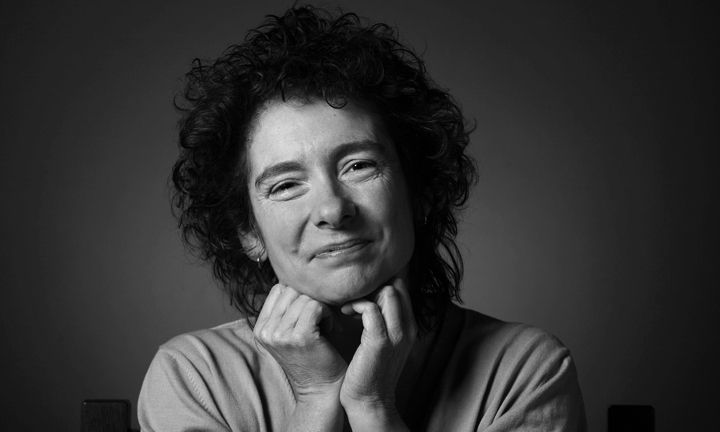Born in Manchester, England, in 1959, novelist Jeanette Winterson was adopted as an infant by working-class Pentecostal parents and raised in the small English mill town of Accrington. By the age of 12, she was reciting the Bible by heart and preaching sermons on street corners. By 16, she was an outcast from the church, having fallen in love with another teenage girl and left home.
Much of the turmoil of Winterson’s early life was recounted in her acclaimed first novel, Oranges Are Not The Only Fruit, which made her a sensation in the British literary world and earned her the 1985 Whitbred Prize for best first novel. Since then, she has written nearly a dozen more, including The Passion (1987), Sexing the Cherry (1989), Written on the Body (1992), The Powerbook (2000), and Lighthousekeeping (2004), as well as several screenplays, plays, and works of nonfiction. Always controversial, Winterson’s works explore themes of desire, fantasy, sexuality, feminism, gender identification, love, and power in lyrical and imaginative prose, frequently mixing myth and history in settings ranging from 17th-century England to cyberspace. Her latest book is Why Be Happy When You Could Be Normal.
Of her early experience with fundamental Christianity, Winterson says she no longer subscribes to any organized religion but that the spiritual influence in some way continues to inform her writing.
“I’m not religious, nor would I seek to be,” she has said. “But I suppose it’s about transcendence. It’s because I am convinced of the invisible world beyond the material that I write the way I do.”
In addition to her Whitbread Prize, Winterson has been the recipient of the John Llewellyn Rhys Memorial Prize, the E.M. Forster Award from the American Academy of Arts and Letters, and the Lambda Award for lesbian fiction, among others. She writes columns for the British newspapers The Times of London and The Guardian.

